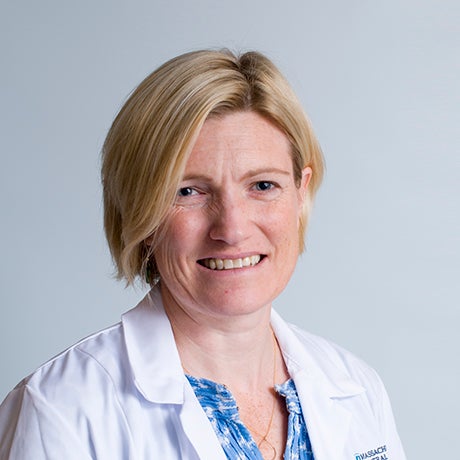News & Highlights
Topics: Five Questions, Funding, Microbiome, Pilot Funding
Five Questions with Caroline Mitchell
Our "Microbiome in Human Health and Disease" pilot funding awardee discusses her research in fertility.

Caroline Mitchell, MD, MPH, is an associate professor of Obstetrics, Gynecology, and Reproductive Biology at Massachusetts General Hospital. She was awarded a pilot grant from our Translational Innovator program to investigate the role of the reproductive tract microbiota in fertility.
What prompted you to apply for this pilot funding opportunity and what are your expectations for the results?
I applied for the pilot grant at the urging of a collaborator, Jorge Chavarro, MD, ScD, who is at the Harvard T.H. Chan School of Public Health. He conducts studies that are related to environmental exposures and IVF outcomes in the in vitro fertilization (IVF) clinic. Jorge said, “There’s this grant from Harvard Catalyst, let’s work together and look at microbiome and IVF outcomes, and also diet.” There was this lovely confluence of interest and opportunity that led us to start working together.
I expect to find that lactobacillus bacteria are helpful for achieving pregnancy. I’m not sure we know exactly how that works – whether it’s lactobacillus in general, in the vagina and gut, or if it’s in the cervix and if it’s the kind that I think is the “good” one. Since we applied, there has been a case report published where researchers accidentally sampled someone in very early pregnancy and also during a miscarriage.
In the pregnancy that was successful, they found Lactobacillus iners, which is not a lactobacillus we think of as a “good” one. In the sample taken before the miscarriage, the researchers found L.crispatus, which is unusual as this is generally thought of as the “good one.” We would have expected it to be the other way around. So, I think that case report shows that every piece of data has the possibility to confound expectations because there’s not much known in this field.
Has the influence of the gut microbiome on pregnancy been examined before?
There have been a couple of papers, some from my mentor in Seattle about extra genital reservoirs of lactobacillus, and also from a group in Pittsburgh. These papers have demonstrated that if you find rectal colonization with these common vaginal lactobacillus species, women are less likely to develop bacterial vaginosis which suggests that the rectum may be a reservoir.
“Every piece of data has the possibility to confound expectations because there’s not much known in this field.”
However, this has not been studied in a robust way and it’s challenging because the rectal swabs come up with all of the gut bacteria. And because the lactobacilli are such a small portion of the community, you have to do culture qPCR to find out if they’re present. This is a far more labor-intensive process and very few gut researchers really care that much about the vagina to do that work. And the vaginal researchers haven’t looked at the gut microbiome robustly.
Do you wish that more researchers were studying the gut and vaginal microbiome together to compare the two?
Yes, that’s why we’re doing it in this study, because I think it’s certainly a question that patients ask me all the time. What should I do with my diet to fix my “vagina” problem? And all I can say to them is the best data out there is bad. What it says is that you should eat a healthy, balanced diet with lots of whole grains and fruits and vegetables, which is very boring advice, but that’s the state of the science.
The nice thing about our proposal is that my collaborator Jorge Chavarro is an expert in diet and has a food frequency questionnaire that’s well-validated, so we will have data on both the gut and vaginal microbiome. While it’s not exactly an aim of the project, this will provide data that is missing from the field.
Do you think that women coming in for IVF treatment are on a specific diet that may be confounding in some way?
I absolutely think most people are probably on some sort of modified diet if only because there’s so much out there on the internet about fertility and diet. Chavarro has shown some associations between diet and IVF outcomes which suggest that even in that population you can still see differences. My hope is that we’ll be able to find a link, so that in generating data on diet plus the gut and vaginal microbiome, we’ll be able to find an internal association that will be true no matter what the generalizability to the greater population.
What brought you to this field and how did this become your area of expertise?
When I finished my residency, I thought that I wanted to focus on global health, studying HIV and women. The chair of my department at the time said, “If you really want to understand the risk for HIV in women, you need to study the vaginal microbiome and you need to go into the lab.” So, I said fine I will humor you and I’ll learn this stuff that you think is important and then I’ll do what I want to do.
It turned out that I actually loved being in the lab and I loved studying the vaginal microbiome. He was totally right; it was the best advice I’d ever received. Having the opportunity to learn that my current work is what I love was really incredible.

